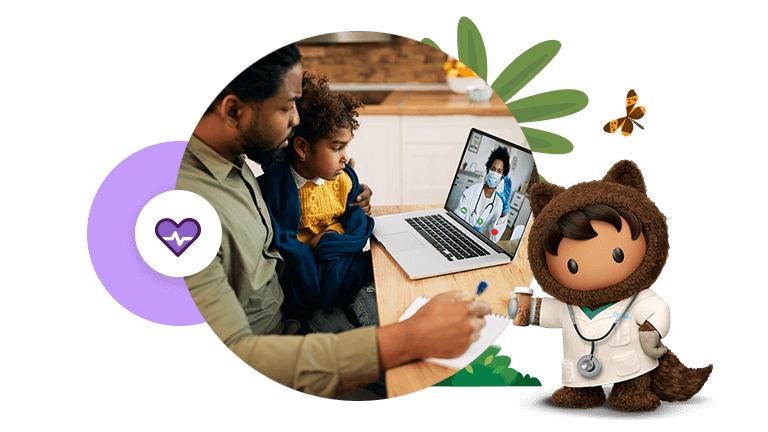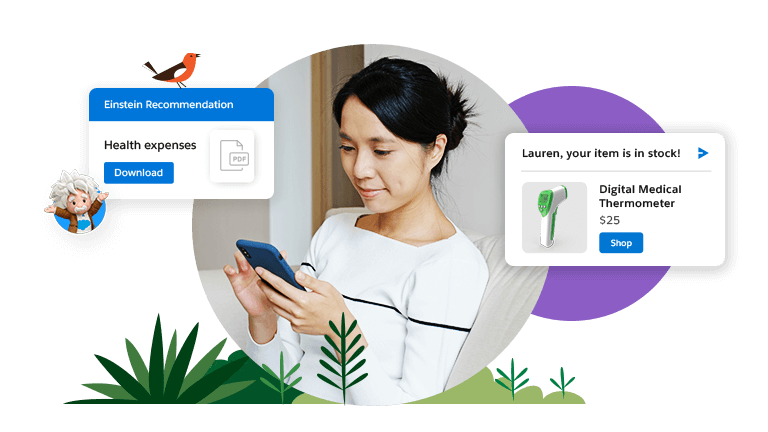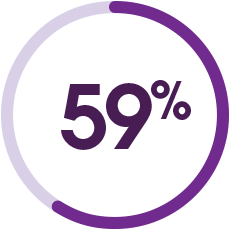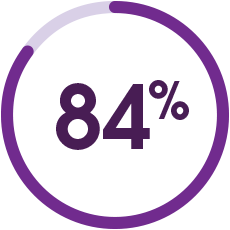Why Trust Is Important in Health: New Findings from the “Connected Health Consumer” Report
Insights from 12,000 health consumers reveal trust is the litmus test for customer satisfaction
There’s no denying that we are in the middle of a consumer trust crisis. Almost 60% of consumers believe their personal information is vulnerable to a security breach. The lack of trust is even true within the health industry. Consider that 48% of consumers believe that the health industry is prioritizing its own needs over patient needs, according to new Salesforce research. When you combine decreased trust with increased expectations, consumers wind up taking matters into their own hands.
Trust is the new litmus test for satisfaction. Beyond that, trust influences consumer behaviors. When consumers trust health companies — whether they are payers, providers, medical technology companies, or pharmaceutical companies — they are more willing to share information. They are also more inclined to use services that improve their health outcomes.
Salesforce surveyed more than 12,000 global health consumers for the second edition of its “Connected Health Consumer” report to uncover what makes trusted health companies stand out. This study centers on consumers’ points of view across healthcare and life sciences sectors. Insights reveal that trusted health companies:
- Deliver personalized digital experiences
- Tailor communications across channels
- Treat the patient as a whole person
Welcome to the new era of health
- How online portals lead to 55% of consumers trusting their payers
- Why only 13% of consumers with prescriptions completely trust pharmaceutical companies
- How 77% of consumers who completely trust medical technology companies think their communication preferences are understood
- Why providers need to consider their patients as a whole person and explore their social determinants of health
Fill out the form to get the report.

Insight #1: Trusted health companies deliver personalized digital experiences
There is a direct link between trust and personalized services across health sectors. Our study showed that consumers who received more personalized resources and communications were more likely to trust health companies.
Consumers who completely trust health companies are nearly seven times more likely to receive reminders to take or manage medicine from pharmaceutical companies (compared to those who don’t trust them). They are also 3.4 times more likely to receive personalized health goals from their provider.
When it comes to delivering personalized care, omni-channel digital experiences are key. For example, websites and online portals help providers make it easy to access personalized health goals. The overwhelming majority (71%) of health consumers say it’s very important for providers to have an easy-to-navigate website, and 59% agree that those with better online capabilities are more likely to deliver better service.
Let’s take payers, otherwise known as insurers, as an example. Consumers may receive the following personalized online offerings from payers:
- A complete view of their health expenses
- Tailored rewards
- Online portals as well as chat support
- Virtual care coverage
- Onboarding and an introduction to coverage
- Personalized health policies
Online portals are especially important. Most members (55%) who completely trust payers have access to portals. But it’s not enough to simply offer these online channels. Payers must communicate that they are available to members and use them to deliver relevant information.

Insight #2: Trusted health companies tailor communications across channels
The pandemic may have accelerated remote care, but people will always have a need — even a preference — to see their providers in person in certain scenarios. Asking an urgent question can happen on a digital channel, but a face-to-face visit may be needed. Meanwhile, scheduling an appointment is easy through a patient portal.
Health consumers now expect a hybrid care experience. This gives them the power to decide the manner in which they receive services. As part of this hybrid experience, health consumers are turning to email, apps, and chat more often – 44% of consumers prefer receiving test results through digital channels.
It’s important for healthcare and life science companies to acknowledge channel preferences. Unfortunately, medical technology companies are dropping the ball when it comes to making communication easy for the consumer. The new report shows that only 41% of consumers feel like medical technology companies understand their communication preferences.

Insight #3: Trusted health companies treat the whole person
There’s more that goes into a patient’s wellbeing than finding the right doctor or providing necessary lab testing. Seventy-one percent of consumers want care and services that address their social, economic, and environmental factors.
Addressing social determinants of health (SDOH) goes beyond a consumer’s preference as they affect up to 80% of health outcomes. Our study shows that lower-income respondents are more likely to face a range of emotional, mental, and physical hurdles to receiving care, such as a lack of transportation to appointments. In fact, 62% percent of lower-income respondents say these barriers get in the way of accessing care.
Trusted health companies stand out because they provide services that address the whole person. Consider that 84% of patients who completely trust providers think that they have a complete view of their health. And 51% say it’s very important for their provider to have a well-rounded view by asking about nutrition, access to resources, and home life. When health consumers feel like they are both seen and understood, they share more information. This results in better outcomes and increased consumer satisfaction.







